Iran’s Guards Burry Journalist’s Body Secretly In Unmarked Grave
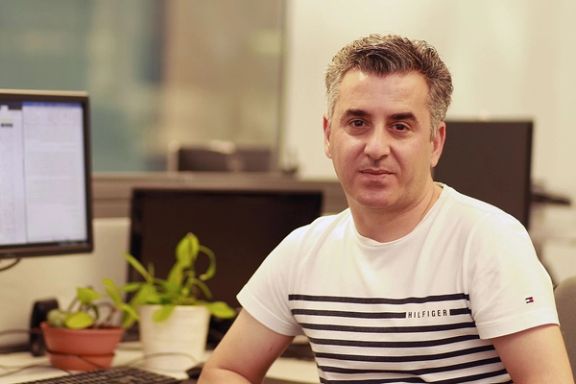
Iran’s Revolutionary Guard’s intelligence organization has secretly buried the body of an exiled Iranian journalist whose coffin was shipped to Iran for family burial.

Iran’s Revolutionary Guard’s intelligence organization has secretly buried the body of an exiled Iranian journalist whose coffin was shipped to Iran for family burial.
According to information obtained by Iran International, Reza Haqiqatnejad was buried in an area far from his hometown in the southern Fars province without the permission of his family. The reason for the secret burial without any funeral service is not clear since he was not a member of any opposition group. The only explanation can be an IRGC attempt at revenge since he was a top analyst who exposed the regime’s contradictions and weaknesses.
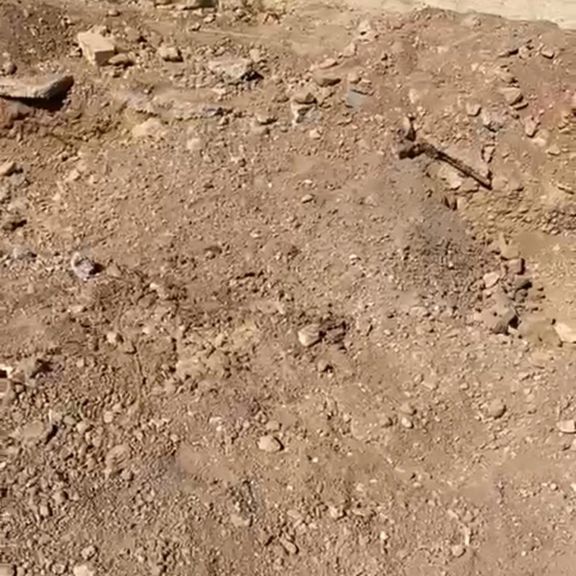
The IRGC had taken away Haqiqatnejad’s body after his coffin arrived in Iran, preventing his burial in his hometown of Shiraz.
In a video message released on social media, the deceased journalist’s elderly mother had pleaded with authorities to let her see and bury his son. Haqiqatnejad, 45, passed away in Berlin after six months of battling cancer. He died on October 17 and his body was repatriated to Iran for burial on October 25.
He worked for Radio Farda, a Persian broadcaster in Prague financed by the US Congress.
His family had made arrangements for burial at a cemetery in Shiraz and acquired all the relevant permits but according to his relatives and friends, security forces have been pressuring the family to agree to his burial in a cemetery outside the city.
The abduction of his body drew numerous reactions by the public, who said the Islamic Republic is even afraid of his dead body.
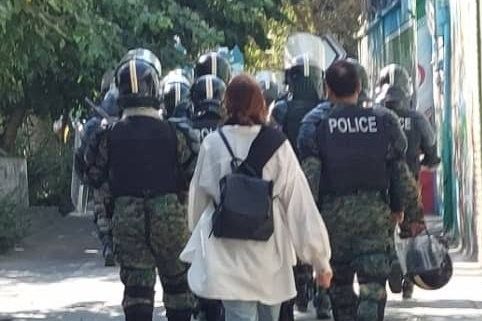
The Islamic Republic’s organization enforcing dress code regulations has taken new measures to intensify the observance of hijab, which many Iranians are defying.
Ali Khan-Mohammadi, the spokesperson of Iran’s Headquarters For Enjoining Right And Forbidding Evil, tasked with promoting the Islamic Republic’s interpretation of Islamic laws, said on Sunday that the body has signed an agreement with the country’s judiciary to use Basij paramilitary forces as hijab enforcers.
According to the new agreement, the roles of mosques and local Basij bases will increase in the enforcement of dress code laws and commanders of Basij units will be ordained by the judiciary as official hijab enforcers.
Basij are religious zealots and a paramilitary force under the command of the Revolutionary Guard. Their involvement in hijab enforcement will further increase tensions in Iran.
Removing hijab is a legal offence by women, and the government’s position will not change in this regard, Khan-Mohammadi stressed.
Since antigovernment protests started across the country in mid-September, when 22-year-old Mahsa Amini was killed in the custody of hijab, police, many Iranian women are now appearing in public places without headscarves to express solidarity with protesters.
On Saturday, Commander of Iran’s Revolutionary Guard Hossein Salami threatened people not to take to streets anymore saying that Saturday was the last day of protests.
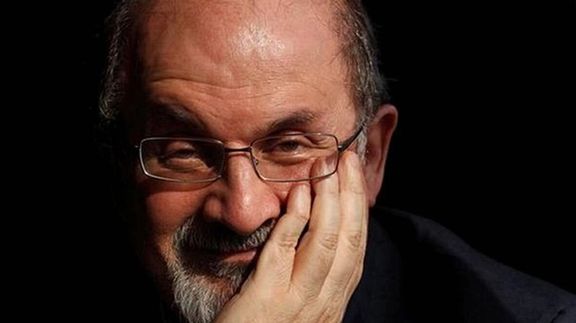
The US has blacklisted the Iranian organization that had issued a multi-million-dollar bounty for the killing of Indian-born British writer Salman Rushdie.
The Department of the Treasury’s Office of Foreign Assets Control (OFAC) took action Friday against the 15 Khordad Foundation, one of the organizations created in 1982 on orders of the Islamic Republic’s founder Ruhollah Khomeini with aim of promoting the revolutionary ideology, under the supervision of the Office of the Supreme Leader.
Since Khomeini’s edict pronouncing a death sentence on Rushdie in February 1989, the 15 Khordad Foundation committed millions of dollars to anyone willing to carry out the heinous act and as well as later raising the reward for targeting the author.
“The United States will not waver in its determination to stand up to threats posed by Iranian authorities against the universal rights of freedom of expression, freedom of religion or belief, and freedom of the press,” said Under Secretary of the Treasury for Terrorism and Financial Intelligence Brian E. Nelson, adding that “This act of violence, which has been praised by the Iranian regime, is appalling. We all hope for Salman Rushdie’s speedy recovery following the attack on his life.”
Rushdie, who was stabbed in August because of the death edict, has lost sight in one eye and use of a hand, his agent Andrew Wyle revealed earlier in the month.
He was stabbed repeatedly for 20 seconds by Hadi Matar -- a 24-year-old resident of New Jersey who appreciates Khomeini -- in August as he was about to deliver a lecture at the Chautauqua Institution in New York state.

Iran's two top intelligence organs issued a joint statement claiming that foreign intelligence, especially the CIA, have a significant role in popular protests.
The Islamic Republic’s Intelligence Ministry and the Intelligence Organization of the Revolutionary Guard issued the statement on Friday, alleging that a mission called “Iran’s Destruction Project” that was earlier implemented in countries like Afghanistan, Iraq, Syria, Yemen, and Libya has ended in a “humiliating defeat” in Iran.
The joint statement has introduced Niloufar Hamedi and Elahe Mohammadi, twp women journalists arrested days after protests began in September, as “foreign agents.”
They say that Niloufar Hamedi, who published the photo of the deceased Mahsa Amini on a hospital bed, was “among the people trained in special courses abroad.” Amini’s death from severe head trauma in police custody triggered the current popular protests across the country. The unrest has been the longest sustained movement against the Islamic Republic.
“Using the cover of a journalist, she was one of the first people who arrived at the hospital and provoked the relatives of the deceased and published targeted news,” adds the statement.
The statement has offered no evidence about the two journalists having travelled abroad, received training or having any ties with foreign organizations.
The ominous statement came as several Iranian hardliners Friday signaled that the government will resort to more force to crush the popular protests.
The IRGC and the Intelligence Ministry have also accused Elahe Mohammadi, another journalist of working for foreign services saying that “she instantly attended the funeral ceremony of Mahsa Amini in her birthplace Saqqez to provoke her relatives by circulating the news and images of the funeral ceremony, and burial.”
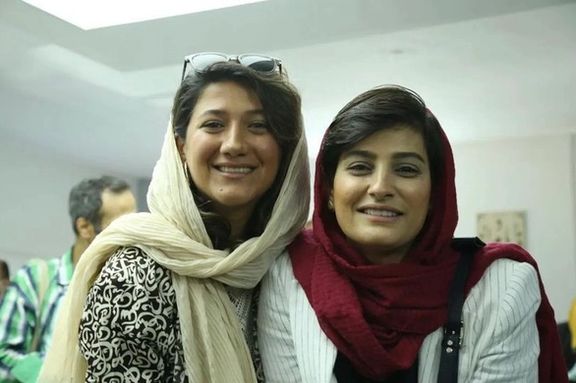
The two intelligence bodies also claimed that Mohammadi is “trained by the American mafia regime in foreign countries,” adding that together with Niloufar Hamedi, Mohammadi has “played the role of primary sources of news for foreign media.”
In this statement the Iranian intelligence organizations accused Washington of allocating billions of dollars every year to find elements in Iran and connect them to “Western networks under the cover of human rights activities and promotion of democracy.”
The statement claims that after the downing of a Ukrainian plane over Tehran in January 2020 and the collapse of Abadan’s Metropol building “incidents”, US agents “urged their media to use every challenge and problem to provoke an inefficiency crisis [in Iran] and focus on the illegitimacy of the Iranian establishment.”
The IRGC and Intelligence Ministry say the United States tried “to attribute the effect of sanctions on people’s lives to the inefficiency of the Islamic Republic through making false demands in cultural and social fields.”
The statement further claims that in the past years, US and Israeli intelligence services have made extensive efforts to “transfer money and arm criminals with weapons to enable them to carry out sabotage operations against important centers and facilities, and use violence against the civilians, police forces and the Basij [militia].”
It also adds that “enemy’s” intelligence services try to influence teachers, workers, and students through “creation of fake syndicates and leaders” to “cause chaos” in the country.
The intelligence bodies further stated that “enemies” organized and implemented a “global media war” against Iran, through TV networks and social media.
It accuses Twitter, WhatsApp, and Instagram of “ignoring their own regulations” to pave the ground for the spread of “fake news.”
Referring to the measures taken by the US government to provide free satellite internet for the Iranian people, they said “The Starlink project is to expand America’s internet dictatorship!”
In the end, the statement has once again threatened the “enemies” saying that their “crimes in recent events will not be forgotten or forgiven.”
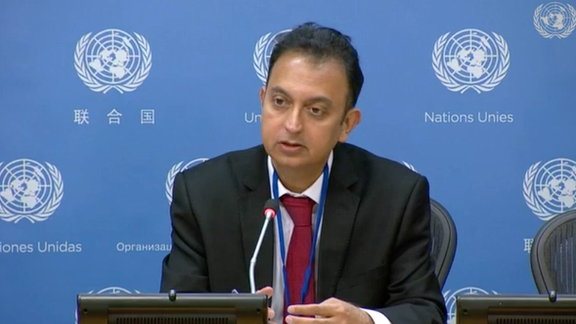
The UN Special Rapporteur on the Human Rights Situation in Iran has called for prompt establishment of investigative mechanism into human rights violations in Iran.
In a statement on Wednesday, Javaid Rehman said current investigations and domestic accountability channels had failed to meet the minimum standards of transparency, objectivity and impartiality, urgingan independent mechanism into all human rights violations leading up to and since the death of Jina Mahsa Amini, who died in hospital after being arrested by the morality police.
He said that the Islamic Republic is monitoring, harassing, and sometimes beating women on a daily basis in the pretext of its mandatory dress code -- implemented through the morality police.“This is meant to instill an atmosphere of fear,” he noted.
“Chronic impunity and lack of redress for previous violations have culminated in today’s events as we see protests throughout the country calling for justice and accountability for Amini’s death but also demanding respect for fundamental socio-economic and political rights and particularly freedom of expression,” he added.
Also on Wednesday, a group of UN human rights experts condemned the killings and the crackdown by security forces in Iran on protesters, including alleged arbitrary arrests and detentions, gender-based and sexual violence, excessive use of force, torture, and enforced disappearances.
They also urged that the reports be thoroughly and independently investigated and those responsible held to account, adding, “An alarming number of protesters have already been detained and killed, many of whom are children, women and older persons. The Government must instruct police to immediately cease any use of excessive and lethal force and exercise restraint.”
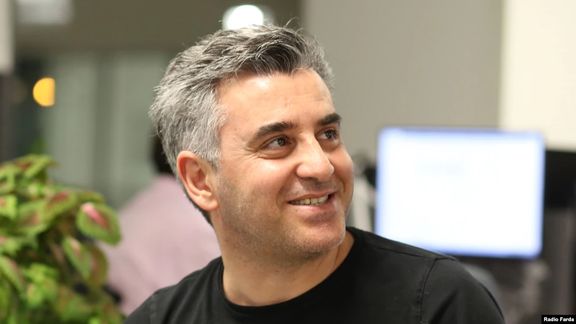
Iranian security has kept the body of an exiled journalist to his family after his coffin arrived in Iran, preventing his burial in his hometown of Shiraz.
In a video message released on social media, the deceased journalist, Reza Haqiqatnejad’s elderly mother, Beigomjan Raisi, who said she had not seen her son for more than six years, pleaded with authorities to let her see and bury his son. Haqighatnejad, 45, passed away at Berlin ten days ago after six months of battling with cancer.
“I had not seen him for six years, and I wasn’t aware of his illness in the past six months. They finally let me bring his body to the country, but now the Revolutionary Guards [IRGC] or police have abducted his body from the airport,” she said.
Haqiqatnejad who worked for Radio Farda, a US-sponsored Persian news network based in Prague, died on October 17 and his body was repatriated to Iran for burial on October 25.
IRGC forces reportedly took the body to an unknown location after his coffin arrived at Shiraz airport. The family had made arrangements for burial at a cemetery in Shiraz and acquired all the relevant permits but according to Haqiqatnejad’s relatives and friends, security forces have been pressuring the family of the deceased journalist to agree to his burial in a cemetery outside the city.
Haqiqatnejad, a seasoned journalist had to leave Iran following escalation of pressure on journalists during the 2009 protests against disputed presidential elections. He focused on corruption in Iran during his three years at Radio Farda and produced many reports on financial corruption and the IRGC as well as the clampdown on journalists and protesters in the current wave of protests ignited by the death in custody of the 22-year-old Mahsa Amini.
Haqiqatnejad’s last tweet was about the confrontation of schoolgirls in the city of Karaj with a government official who was visiting their school, booing the official out of their school.
The abduction of Haqiqatnejad’s body has drawn numerous reactions by social media users, who say the Islamic Republic’s authorities are even afraid of his dead body.
Popular Iranian former football (soccer) player Ali Karimi -- who is currently abroad and has been charged in absentia for supporting the ongoing antigovernment protests – addressed the Iranian government's spokesman, saying that the Islamic Republic are telling him it is safe to return to Iran, yet they are refusing even to handover Haqiqatnejad’s dead body to his family.
Describing him as a "brilliant journalist," RFE/RL President and CEO Jamie Fly said the Iranian regime’s manipulation of Haqiqatnejad’s family was "disgraceful and disgusting" and that the family deserves to be allowed to bury him without regime harassment. He was "passionate about freedom and justice for his fellow Iranians, and a champion of the voiceless until the end," Fly added.
A twitter user shared one of Haqiqatnejad’s tweet about Iran’s Supreme Leader, calling on people to repost it when Iran's Supreme Leader Ali Khamenei passes away. In the post, Haqiqatnejad had highlighted the track record of Khamenei’s decisions during the Covid-19 pandemic. This record, he had said, was enough to see how he led the country to a catastrophe.